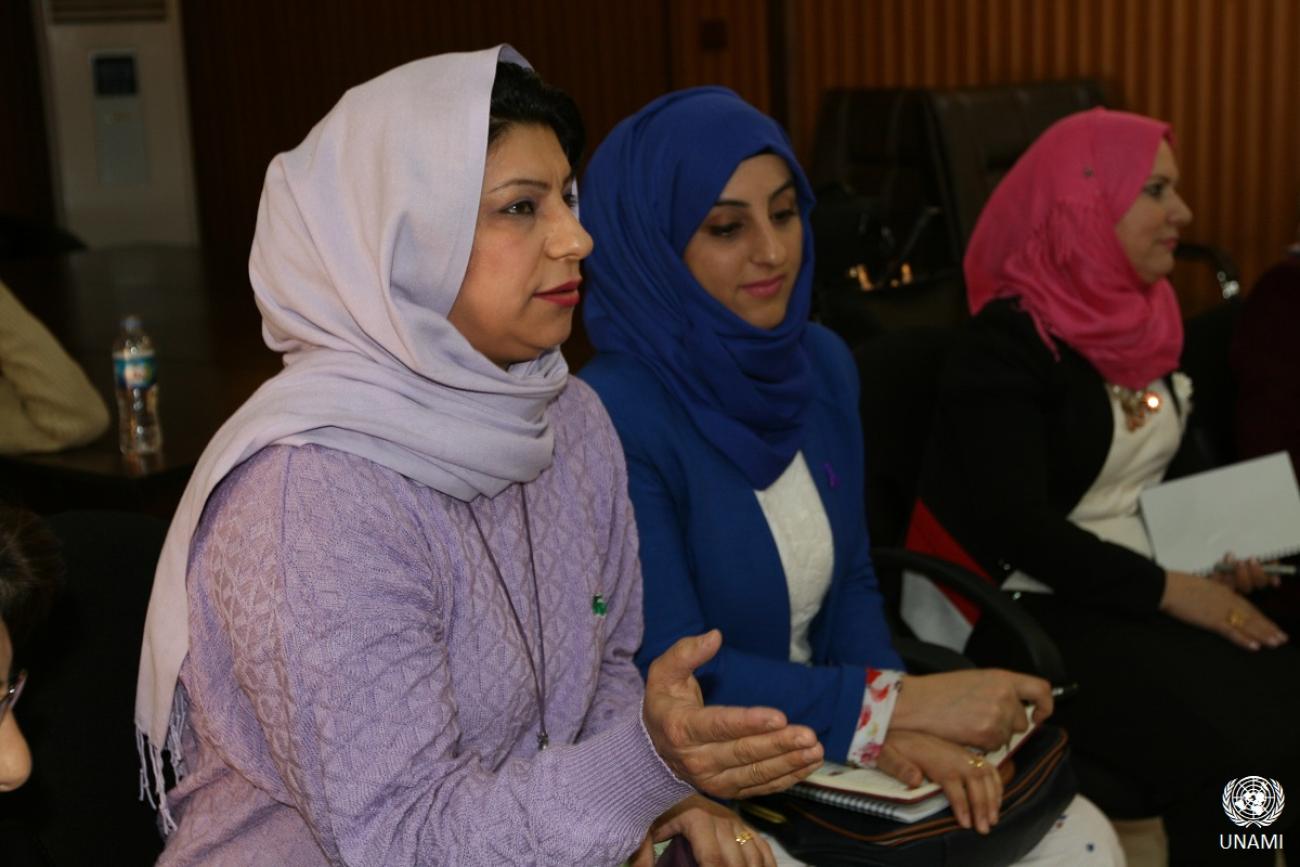Baghdad, Iraq, 8 March 2018 - International Women’s Day is marked annually on 8 March to celebrate the acts of courage and determination by women who played an extraordinary role in the history of their countries and communities.
While politicians and activists provide an overview of the situation of women’s rights on that day, the occasion serves as an inspiration for other women and is also a cause for sparking opinions about the role of women in society.
But away from the official ceremonies, Iraqi women and men reflect on the occasion. Some see in it hope that women in Iraq, and across the world, would fare better in the future and take their full place in society.
Engrossed in a conversation with a friend over the aromatic smell of Arabic coffee at a café in Baghdad, Aya Abdel-Kareem - who hails from Mosul in Ninevah Governorate in northern Iraq - solemnly recounts her story of suffering and success. With the infiltration of the Daesh terrorist group in her hometown, Aya and her family were displaced for months, with much disruption to her education. However, her ambition to become a doctor and her passion to serve the needy triumphed in the face of adversity as she decided to relocate to the capital Baghdad.
The sacrifice of leaving her family to pursue her dream has not been easy for Aya, but challenging the status-quo of being suppressed by the ideology of Daesh was worth the risk and pain. “I had to leave many things behind and had to live in a city away from my parents. You need to make compromises in life if you are willing to achieve your dreams,” Aya tells me in her soft voice; adding that “Your role in the house, at work and in the street reflects who you really are. Fight for a beautiful life.”
For Aya, the time is now for women in Iraq to be courageous and to stand up for their right to fulfil their dreams. And this is why the theme for this year’s International Women’s Day resonates so well with her – it means hope.
In speaking with other Iraqis, the views shift from one generation to another.
Ghassak Hassan, a 43-year-old Engineer and homemaker drew comparisons between the older generation and the current one. “The capabilities of the Iraqi woman are the same but her role is different now,” she said, adding that the new generation has a lot to learn from the older generation of women. Still, she sees an important role for women in Iraq’s life. “I wish I had the opportunity to serve the country; the aim of our women is to build, teach and serve the country and the next generation.”
Asked what she would do differently if she had the chance, Ghassak Hassan said that “if things were different when I was younger, I would probably have run for political office and aspired to walk in the footsteps of Naziha Al-Dulaimi – Iraq’s first female minister”.
Today’s Iraqi youth, while appreciative of the past, are strong supporters of women’s rights. Yasser al-Bakri, a young man in his early 20s, is quite candid when he says that “words cannot really describe the strength that Iraqi women fostered in facing the difficulties during the past decade, acting as a man and a woman all at the same time”. He added that the openness in society helps the cause of women: “People have changed, especially the new generation, they are more open to life and gender parity. I, for one, have always encouraged my female colleagues to pursue their careers in the sciences and in specialized areas such as in engineering”.
Echoing Yasser’s sentiments, Abu Mustafa, a 55-year-old retired pilot, was also appreciative of Iraqi women proudly stating: “I salute the Iraqi woman; in the previous decade she was the mother, the father and the supporter for families - especially during the war”.
Indeed, the time is now - empowering women, empowers humanity!


